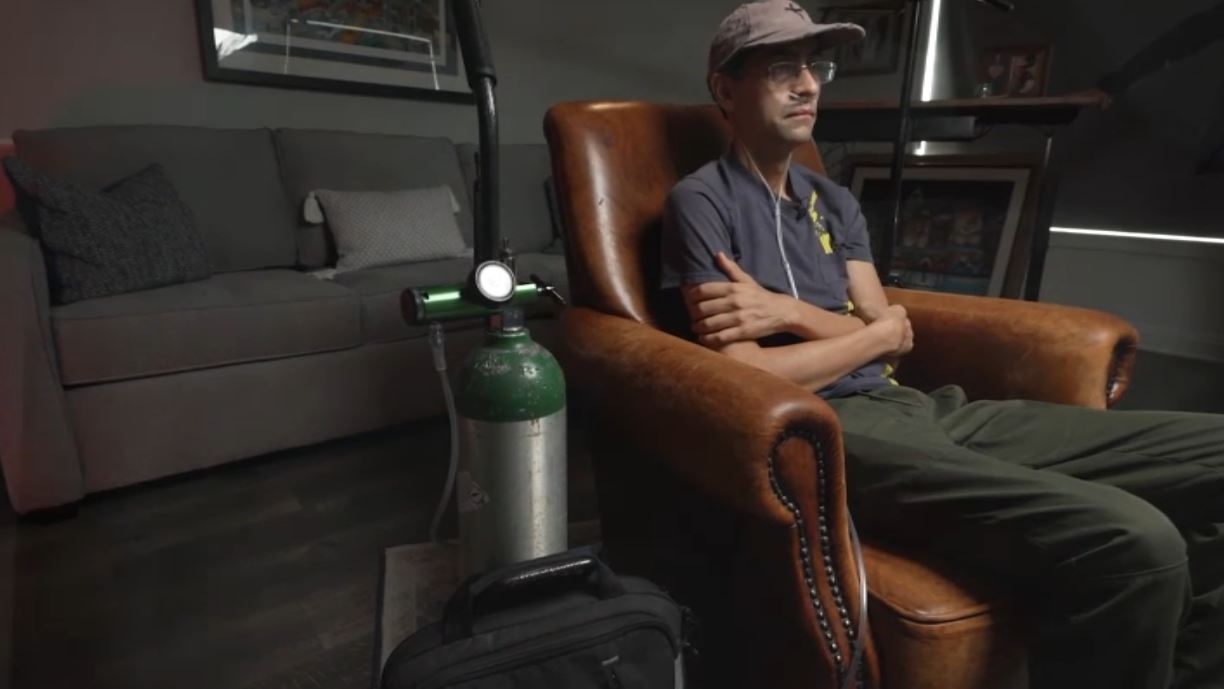A Southern California man battling an irreversible lung disease that doctors say he got by doing his job has been awarded a historic justice in court.
Gustavo Reyez Gonazlez, who was diagnosed with silicosis after having worked with engineered slabs used in kitchen and bathroom countertops for nearly two decades at local shops across Southern California, won his case against several companies that manufacture artificial stone slabs.
“I am grateful to the judge and the jury,” Wendy Torres, Gonzalez’s wife, said.
Gonzalez, 34, received a live-saving lung transplant in 2023. He sued several manufactures of the engineered stone.
Get top local stories in Southern California delivered to you every morning. Sign up for NBC LA's News Headlines newsletter.
In what is believed to be a landmark trial and verdict, the jury last month found in his favor, awarding him more than $52 million in damages.
“I’m hoping that other workers won’t have to face the same illness and possible death during this time,” Torres said. “It’s something that is killing other human beings, and hopefully it will stop, so that these workers will actually have a future with their families, and a future to live and be with their loved ones.
“Hopefully verdicts — consumers hearing about this, and workers hearing about this – can send a message to these companies to stop selling these products,” said James Nevin, Gonzalez’s attorney, said.
Increasing number of silicosis cases
Health experts say cutting, sawing and crushing stone slabs can lead to the exposure of silica dust that goes into the air and into a person’s lungs, causing silicosis.
And engineering stone, which sometimes can be cheaper and more durable than natural stone, can contain a much higher percentage of silica.
As the NBC4 I-Team and Telemundo 52 Investiga have been following the increasing number of silicosis cases stemming from the stone cutting industry, there are now calls to ban some popular products a lot of people have in their kitchens and baths.
A complete ban of artificial stone is not something on the table right now, according to local lawmakers the I-Team and Telemundo 52 Investiga have spoken with.
While there are new temporary standards to more safely work with engineered products, a proposal intended to strengthen regulations and license manufactures and sellers of artificial stone in the state was pulled by the author in July.
“My final meeting with state agencies and the administration, there was a lot of pushback because of the cost of this system,” said Luz Rivas, State Assemblymember for 43rd District.
Cal Osha said new standards on how to work with the engineered stone slabs are expected to be made permanent by the end of the year.
Majority of U.S. silicosis cases are from LA County
As of Sep. 3, 2024, there were 178 confirmed cases of silicosis related to engineered stone in California with at least 13 deaths and 19 lung transplants, according to the state’s Department of Public Health. 105 of the total cases are in Los Angeles County.
Health experts say silicosis mostly affects Latino men who work in fabrication shops.
What happens when a country bans engineered slabs?
So far, only one country in the world has banned the use of artificial stone slabs.
“Australia’s banned it. The U.S. has got to do it, too,” said Jeremy Buckingham, a member of parliament from New South Wales, Australia, explaining that the new ban of engineered stone in Australia went into effect this summer.
“The expectation is that we could lose tens of thousands of people to silicosis over the next decades,” said Buckingham, who was a stonemason before entering politics. “I'm one of those people. I have to go and have a lung screening every year because of the high-risk exposure I experienced.”
The Australian lawmaker said the legislation followed a rise in popularity of the manufactured stone as an inexpensive alternative. Subsequently, there was a rise in silicosis cases in the country.
“The numbers of people getting sick and dying were horrendous,” he said.
Buckingham admitted that there remains pushback from manufacturers of the engineered products.
“They remained very concerned about the ongoing liability to register this material and then have it ultimately removed by licensed professionals in a safe way,” Buckingham explained.
He said in Australia, mostly immigrant workers were the most impacted as well.



